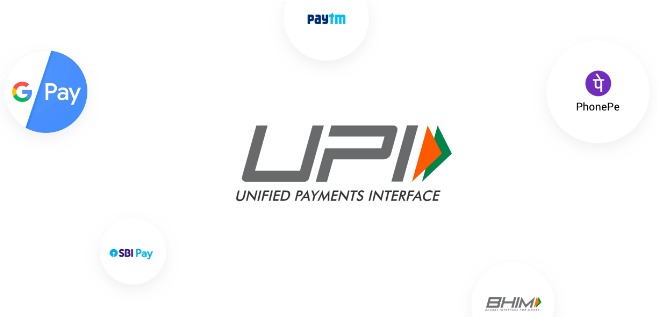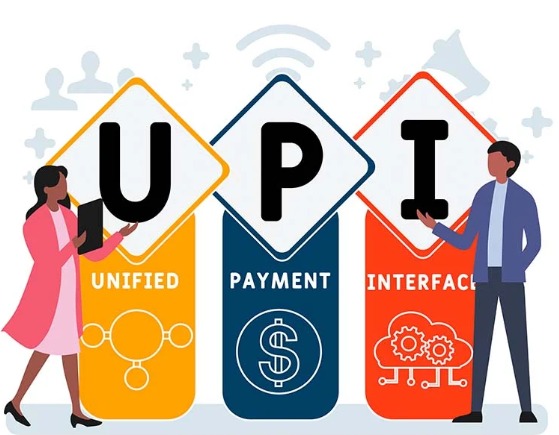UPI AS GLOBAL FINANCIAL POWER
In recent years, India has experienced a remarkable financial revolution through the widespread adoption of digital payments, particularly the Unified Payments Interface (UPI). This digital payment system has rapidly gained popularity, not only in urban areas but also in the smallest corners of the country. UPI, a real-time payment system enabled, seamless peer-to-peer and peer-to-merchant transactions has played a pivotal role in reshaping India’s financial landscape.
Its user-friendly design and widespread accessibility have made it an integral part of everyday life for millions of Indians. Furthermore, the UPI revolution hasn’t stopped at India’s borders; it has ventured onto the global stage, earning support and recognition from international players as well. Thus, UPI has become a game-changer, connecting people and businesses both locally and around the world.
RECOGNIZING THE NEED OF UPI BY THE GOVERNMENT
Traditionally, India’s financial system heavily relied on cash transactions and the majority of the population lacked access to formal banking services, hindering financial inclusion and restricting economic growth. This created a gap between the rural and urban areas, with the latter enjoying more advanced financial infrastructure. Recognizing these challenges, the Indian government launched various initiatives to transform the financial landscape. One such initiative was the implementation of UPI.
UPI is a real-time payment system that allows users to instantly transfer funds between bank accounts using their smartphones. Introduced by the National Payments Corporation of India (NPCI) in 2016, UPI has rapidly gained popularity and surpassed all expectations. With UPI, anyone with a smartphone and a bank account can participate in the digital economy, reducing their dependency on cash. Its user-friendly interface, convenience, and secure transactions have made it the preferred choice for millions of Indians.
TRANSFORMATIONAL IMPACTS OF UPI ON THE INDIAN ECONOMY

The impacts of UPI on India’s economy cannot be understated. It has played a pivotal role in fostering financial inclusion by enabling even the unbanked population to access digital payments.
With UPI, anyone with a smartphone and a bank account can participate in the digital economy, reducing the dependency on cash. UPI allows individuals to transact anytime, anywhere, with just a few taps on their smartphones. Moreover, UPI eliminates the need for sharing sensitive bank details during transactions. Instead, it uses a unique Virtual Payment Address (VPA) linked to the user’s bank account, adding an extra layer of security.
UPI has significantly reduced transaction costs, making digital payments more affordable and accessible. Businesses, tiny and medium enterprises (SMEs), have benefited immensely from this cost-effective solution, enabling them to streamline their operations, expand their customer base, and drive growth.
Additionally, UPI has been instrumental in curbing corruption and promoting transparency in financial transactions. Facilitating direct and traceable transfers has made it harder for illicit activities to go unnoticed. This has strengthened the overall integrity of the financial system and instilled trust among individuals and businesses alike.
GOVERNMENT INITIATIVES AND POLICIES TO ADOPT UPI

The Indian government has taken significant initiatives and implemented policies to support the adoption of the Unified Payments Interface (UPI) and propel the nation towards becoming a financial superpower.
One of the most notable initiatives is the launch of the BHIM (Bharat Interface for Money) app, which provides a simple and secure platform for UPI transactions. The government has actively promoted the BHIM app and encouraged citizens to embrace digital payments through awareness campaigns and incentives. This has played a crucial role in driving UPI adoption across the country, especially among the unbanked and underbanked populations.
Furthermore, the government has focused on creating a robust regulatory framework to ensure the safety and security of UPI transactions. The introduction of the National Payments Corporation of India (NPCI) as the governing body for UPI has brought greater transparency and accountability. The NPCI has implemented stringent security measures, such as two-factor authentication and encryption, to safeguard users’ financial information and prevent fraud.
To further promote UPI adoption, the government has collaborated with various stakeholders, including banks, fintech companies, and merchants. Initiatives like the “UPI Chalega campaign” have been launched to educate merchants about the benefits of accepting UPI payments and provide them with the necessary infrastructure. This has led to a surge in the number of merchants accepting UPI payments, making it more convenient for consumers to use UPI for their day-to-day transactions. Additionally, the government has introduced policies to incentivize digital transactions and discourage the use of cash.
Measures like the Goods and Services Tax (GST) cashback offer for UPI and other digital payments have encouraged consumers to embrace UPI as a “preferred mode of payment”. These policies not only promote financial inclusion but also contribute to the overall growth of the digital economy.
GLOBAL RECOGNITION AND ACCEPTANCE OF UPI

India’s digital payment systems, including the Unified Payments Interface (UPI), are gaining global attention due to efforts aimed at facilitating seamless cross-border transactions. This has resulted in reduced costs for fund transfers and remittances. Several overseas markets have embraced UPI payments, including countries such as Singapore, Malaysia, the UAE, France, the BENELUX countries, Nepal, and the UK.
During the G20 digital economy working group meeting in Lucknow, Union Minister Ashwini Vaishnaw announced that India had signed a memorandum of understanding (MoU) with 13 countries that are interested in adopting the UPI interface for digital payments. Singapore, in particular, has completed its integration with UPI.
These global partnerships have emerged as a result of efforts by NIPL (NPCI International Payments Limited) to collaborate with various countries, establishing an extensive acceptance network for RuPay and UPI. This network allows Indian travellers to make payments using these channels in their destination countries. NIPL, established in April 2020 as a wholly owned subsidiary of the National Payments Corporation of India (NPCI), is dedicated to deploying RuPay and UPI outside of India.
Furthermore, in line with its goal of expanding the digital economy, India has announced UPI access for Non-Resident Indians (NRIs) in ten foreign countries, provided their Indian bank accounts are linked to foreign mobile numbers. Additionally, foreign travellers coming to India will have access to UPI services at select international airports, marking the initial phase of this expansion.
CONCLUSION
With its widespread adoption, innovative features, and user-friendly design, UPI has not only simplified digital transactions within India but also showcased the nation’s potential to become a financial superpower on the international stage. As UPI continues to evolve and expand its reach, India’s influence in the global financial arena is poised to grow significantly, making it a key player in shaping the future of digital finance worldwide.
-Kashish Chhoti
Must read: BREAST CANCER AWARENESS: IS PINK RIBBON CULTURE AN EFFECTIVE CRUSADE OR JUST A MARKETING GIMMICK?





